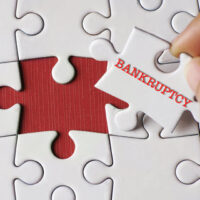Misconceptions About Bankruptcy

Whether you are researching different bankruptcy options yourself or speaking with friends, family members, or colleagues about bankruptcy, it is important to remember that many misconceptions about bankruptcy are shared routinely. While certain internet sites can provide you with helpful information, and sometimes family members or colleagues will be able to offer useful advice, you should keep in mind that these sources may be sources of misinformation about different bankruptcy processes. Our West Palm Beach bankruptcy lawyers want to dispel some of the common misconceptions that are shared about consumer and business bankruptcy filings. The following facts can help you to dismiss bankruptcy misconceptions that could affect the way you are thinking about filing.
Misconception: Most Types of Bankruptcy Involve Asset Liquidation
You might be under the misconception that most or all types of bankruptcy will involve the liquidation of assets, but it is important to know that this is a common misconception. Under the U.S. Bankruptcy Code, only liquidation bankruptcies like those under Chapter 7 involve the liquidation of non-exempt assets. Under other types of bankruptcy cases that involve debt reorganization — like Chapter 13 and Chapter 11 — assets are not liquidated at any stage of the bankruptcy process.
Misconception: Business Owners Can Only File for Chapter 11 or Chapter 7 Bankruptcy
Typically, the two types of bankruptcy filings that are most common for business owners are Chapter 11 cases and Chapter 7 cases. However, it is a misconception that these are the only options for all business owners. Depending upon the type of business and how it is structured, Chapter 13 bankruptcy could be an option for sole proprietors, and Chapter 12 bankruptcy could be an option for family farmers or fishermen. Further, under Chapter 11, there is a specific type of bankruptcy known as Subchapter V for small business owners, which gives small business owners a more streamlined option for filing for bankruptcy.
Misconception: Liquidation Bankruptcies Will Result in the Loss of Most Assets for Consumers
Another common misconception about bankruptcy is that a liquidation bankruptcy will result in consumers having to give up most of their assets. In fact, under Florida law, there are a wide range of exemptions that allow debtors to “exempt” various assets. Florida allows debtors, for example, to exempt all equity in their homes, and to exempt pensions, retirement accounts, a portion of their income, and many other types of property.
Misconception: Bankruptcy Will Prevent You From Being Eligible for Credit Again
Consumer bankruptcy filings do impact your credit, but they do not impact your credit forever. In fact, sooner than you think, you may be eligible to obtain credit again. Depending upon the type of bankruptcy you file for and the type of mortgage you are seeking, you could be eligible for a mortgage again in just a few years. You can often be eligible for other types of credit much sooner.
Contact a Bankruptcy Lawyer in West Palm Beach
If you have any questions about bankruptcy or want to learn more about your options, you should get in touch with the experienced West Palm Beach bankruptcy lawyers at Kelley Kaplan & Eller today.
Sources:
law.cornell.edu/uscode/text/11
leg.state.fl.us/statutes/index.cfm?App_mode=Display_Statute&URL=0200-0299/0222/0222ContentsIndex.html



